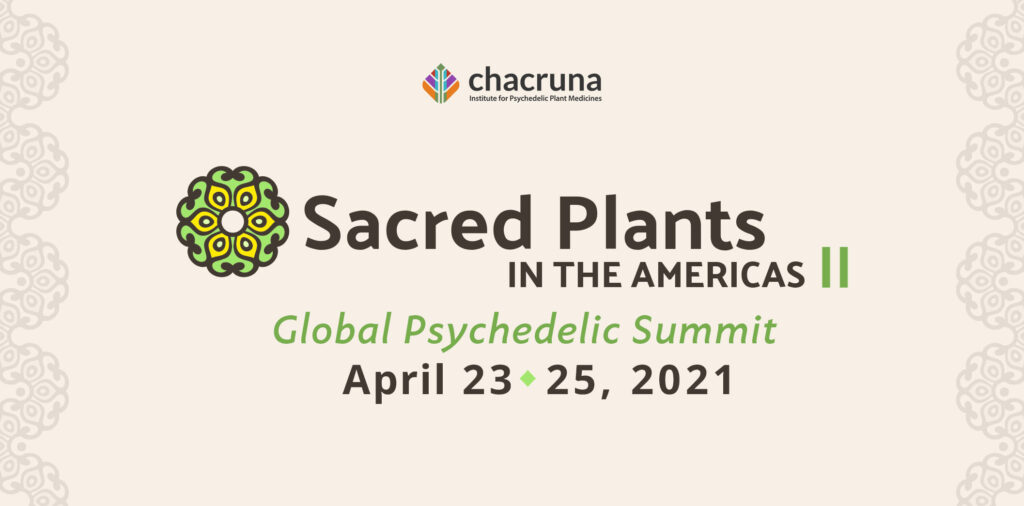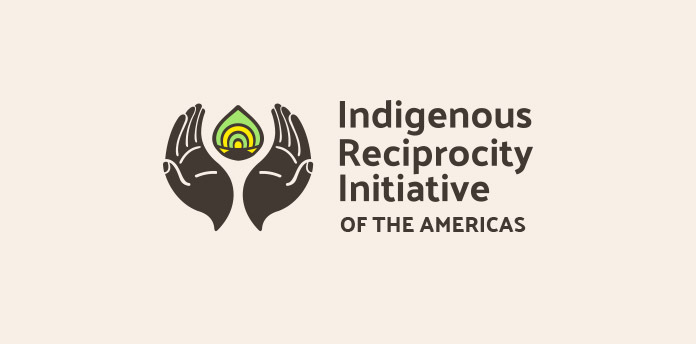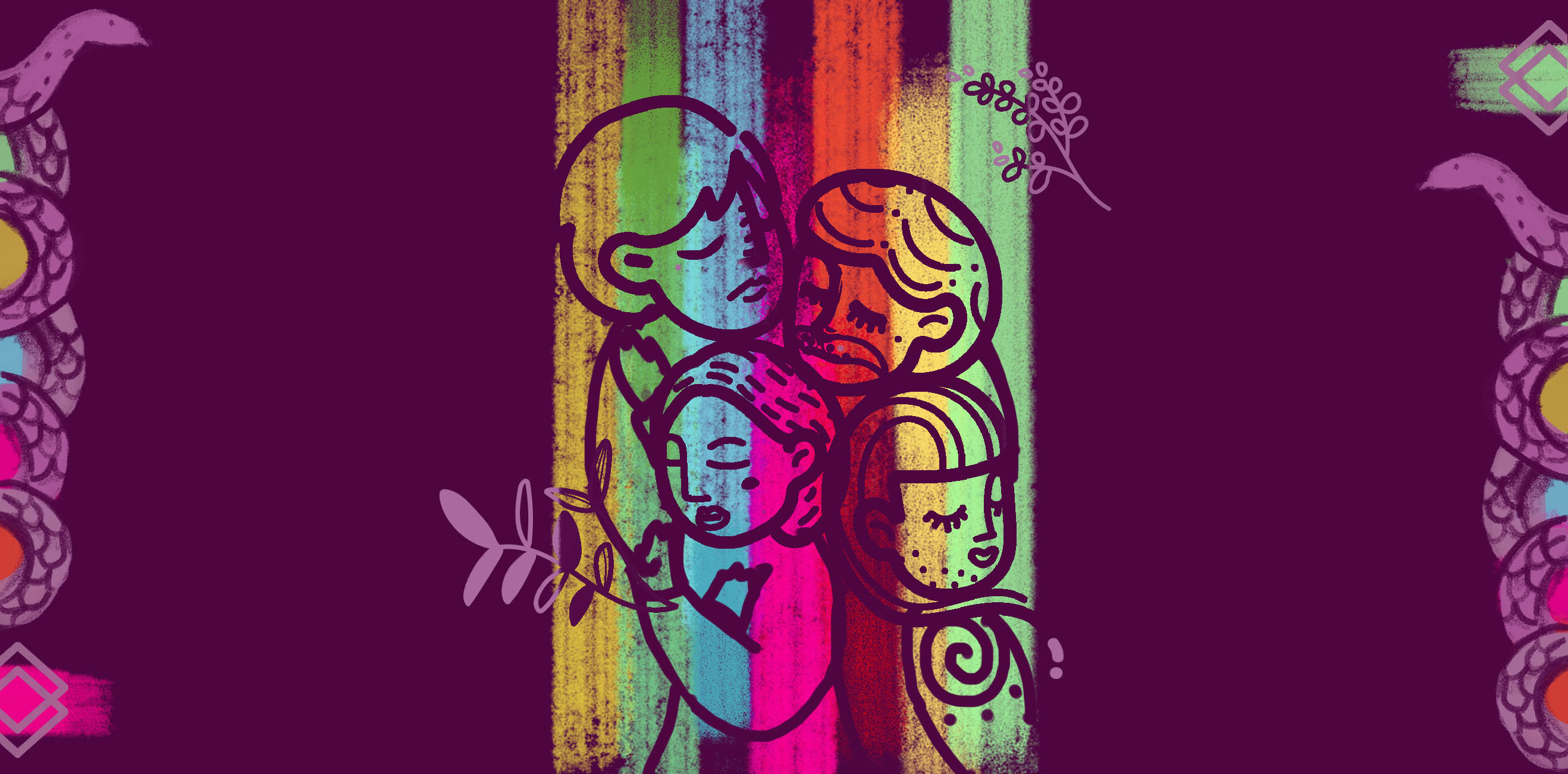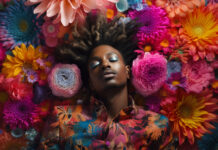- Where are all the Queer People? - November 13, 2019
- Why We’re Starting the Conversation Around Queerness and Psychedelics - April 16, 2019
In recent years, there’s been a growing conversation in the psychedelic community about how to make psychedelic spaces more inclusive. Last year, the Multidisciplinary Association for Psychedelic Studies held a training for therapists of color interested in administering MDMA for post-traumatic disorder. This inspired broader conversations about how trials can be designed to better support LGBTQIA+ folks. Meanwhile, nonprofits like North Star are doing the hard and important work of holding industry stakeholders accountable so that psychedelic medicine is accessible to those who need it most when it gets to market. While these conversations are promising, there continues to be ayahuasca ceremonies, growing in popularity around the globe, which do not always feel inclusive to the LGBTQIA+ community.
In recent years, there’s been a growing conversation in the psychedelic community about how to make psychedelic spaces more inclusive.
Ayahuasca is, of course, drunk in a wide-variety of settings, from lineages with ties to Christianity, such as the União do Vegetal and Santo Daime, to indigenous communities in the Amazon and contemporary circles in cities across the globe. Gender and sexually-diverse people say they’ve experienced prejudice in different ways across these settings, particularly in South America.
The União do Vegetal, a Christian religion sect, has a reputation for being one of the most socially conservative ayahuasca churches. In 2006, the United States Supreme Court granted them the right to drink hoasca as a religious sacrament (they differentiate hoasca from ayahuasca as, they say, hoasca always contains just the plants Banisteriopsis caapi and Psychotria viridis. Ayahuasca also frequently contains just those two plants, but can include additional admixtures).
The UDV, much like Christian denominations from the Seventh-day Adventist Church to the Southern Baptist Convention, doesn’t permit members of the LGBTQIA+ community to assume positions of leadership in the organization.
Sign up to our Newsletter:
The UDV, much like Christian denominations from the Seventh-day Adventist Church to the Southern Baptist Convention, doesn’t permit members of the LGBTQIA+ community to assume positions of leadership in the organization. The religion, founded on the border of Brazil and Bolivia in 1961, has a hierarchy of leaders, with “mestres” (masters) at the top, and a central governing body, based in Brazil, that issues statements about the organization’s stance on issues to its more than 200 chapters in the US, Australia, and beyond. In 2008, the UDV’s leader at the time issued a statement to their chapters that was leaked and published online, saying:
“As we have faith in the incontestable existence of God, we can never agree with the practice of homosexuality as it goes against the natural origin of human existence; this is, the relationship between man and woman which gives origin to generation. We disagree with the marriage of persons of the same sex because we do not want and do not have the right to bring about the extinction of the human species which belongs only to God.”
A former mestre, who asked to remain anonymous, told Chacruna that gay people in the UDV are “treated as a joke, specifically in the north of the country.” He left the organization in 2012 after his own marriage ended.
“To become a “counselor” or “master” you, as a man, have to be married to a woman,” he told Chacruna. “The pressure is so [intense] on gay people that they end up giving up on the UDV or pretending to be straight to stay in the institution.” A spokesperson for the UDV confirmed to Chacruna that the mestre with the most spiritual authority at the time issued the internal memo above, but said it’s important to differentiate between the memo itself and the comments left about it on the website where it was leaked.
“The pressure is so [intense] on gay people that they end up giving up on the UDV or pretending to be straight to stay in the institution.”

Join us at Sacred Plants in the Americas II
The UDV is not ready to make a public statement expanding upon their stance on LGTBQIA+ issues. In general, the UDV keeps their internal operations and memos private. The spokesperson did say, however, that a central tenet of the UDV is non-judgment. “Those who may have told you that the UDV does not welcome or accept gay members are either misinformed, perhaps looking to advance falsehoods, or both,” they said. “The UDV welcomes all people, regardless of their race, political ideologies, religious beliefs, country of origin, economic conditions, or personal forms of expression. The UDV accepts newcomers from all walks of life and has no prohibitions on membership along the lines of what those you interviewed might have suggested.”
Clancy Cavnar, a clinical psychologist who studied the use of ayahuasca among gay and lesbian people, also said it’s well known that the UDV discriminates against LGBTQIA+ people and does not allow them to ascend the ranks of leadership within the organization. She attributes some of this to the homophobia in Brazil and other South American countries in general.
The Santo Daime church is vastly different from the UDV. There are chapters, but there’s no central organizing body, allowing each chapter more freedom to decide what works for them. Members of the LGBTQIA+ community are welcome to join.
Cavnar, a longtime member of the Santo Daime church, experienced some of this when living as a gay woman in a Santo Daime community in Céu do Mapiá, Brazil. “I felt self-conscious, like I didn’t want people to know,” she said. During all her research, however, she says she’s never heard of any gay or lesbian people in the Santo Daime having notable homophobic experiences in Europe or North America. The Santo Daime church is vastly different from the UDV. There are chapters, but there’s no central organizing body, allowing each chapter more freedom to decide what works for them. Members of the LGBTQIA+ community are welcome to join.
Cavnar said one challenge, however, in the Santo Daime community is that the ceremonies don’t always feel welcoming to gender-nonconforming people. She said women can be expected to present as feminine, with long hair and a skirt or dress rather than pants. In ceremonies, the men stand on one side and the women stand on the other and all are in uniforms.
Cavnar recalled a situation where the son of the leader of a chapter was dating someone who identified as female at birth, but goes by the pronoun “they.” She said they combined aspects of the women’s and men’s uniform to come up with an outfit that felt authentic to them. “That was not well received,” says Cavnar. “The [Daime leadership] told this person, ‘maybe you should find somewhere else to worship.’”
It’s situations like these that have inspired Kevon Simpson, a healer who does plant medicine work, to hold ceremonies that explicitly welcome queer people and people of color.

Discover Indigenous Reciprocity Iniciative of the Americas
It’s situations like these that have inspired Kevon Simpson, a healer who does plant medicine work, to hold ceremonies that explicitly welcome queer people and people of color. As a gay man with HIV, he’s also experienced microaggressions and homophobia in ayahuasca communities, particularly when training with Shipibo and Quechua mestres in Peru.
“When I was doing my training in the jungle with my most recent mestre, I literally had to hide all of my sexuality,” he told Chacruna. As a survivor, Simpson said, he can intuit when an environment is safe for him, and he knew it wasn’t based on how the community treated women and how the Quechua mestres kept pressing him on how he contracted his HIV.
This intuition comes into play when he’s leading ceremonies now, too. He says sometimes he meets people—particularly cisgender men—before a ceremony who he can sense are judging him. He tries to be “softer” in ceremonies, he said, to allow people to do their healing; but, when he’s done that without explicitly stating that the ceremony is welcoming of LGBTQIA+ people, these men have tried to assume a sort of “alpha” role and challenge him in the space. This, Simpson says, can be very damaging when people are trying to go inward, especially in order to heal traumas associated with this sort of toxic masculine behavior. In response, Simpson recently posted on the message board of people interested in working with him, that his circles welcome everyone, including LGBTQIA+ people. If you’re not cool with that, he bluntly said, “get out.”
It really depends on the person, Cavnar says, as everyone has varying levels of trauma about being a gender and/or sexually diverse person. Regardless, though, she agrees that there is just “a different feeling” when a person is in a space with people like them. It can allow for deeper, more healing experiences. And, given the need for these types of experiences in the queer community, there’s no time to waste.
Illustration by Karina Álvarez
Take a minute to browse our stock:
Did you enjoy reading this article?
Please support Chacruna's work by donating to us. We are an independent organization and we offer free education and advocacy for psychedelic plant medicines. We are a team of dedicated volunteers!
Can you help Chacruna advance cultural understanding around these substances?
















